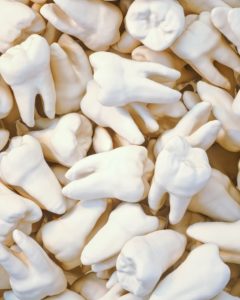The Connection Between Sinuses and Tooth Pain


Why Tooth Pain Occurs With Sinus Flair-Ups
The connection between the teeth and sinuses comes from their proximity to the face. The sinuses are close to the jaw. When they swell and become impacted, they put pressure on the teeth. The two most common conditions that cause tooth pain include the following.
- Sinusitis
- Sinus infection
Sinusitis is when the sinuses become inflamed and swell, which presses on surrounding tissues and the teeth. This condition usually lasts for a few weeks and results from chronic allergies or a sinus infection.
A sinus infection occurs when the sinus cavities fill with mucus and swell. Then bacteria begins to grow within the sinuses cavity, and the area becomes infected. A sinus infection usually requires antibiotics and can take a few weeks to clear up entirely.
When these conditions occur, not only will the teeth ache, but the jaw can become sore and uncomfortable. Many people mistakenly think they have an abscess or a cavity when they actually have sinus-related conditions affecting their mouths.
The location of the tooth pain is usually in the top back teeth where the sinuses are adjacent. The pain feels like a dull, constant ache, or it could be a sharp pain. The symptoms can mimic those of other developing tooth problems, so it’s essential to visit a Euless dental practice to figure out whether it’s your sinuses or something else.
A quick examination of the area and some X-rays are usually the methods used to determine the source of the tooth pain.
Euless Dental Care for Sinuses and Tooth Pain
If you develop pain in your teeth and aren’t sure if it’s sinuses or something else, you should make an appointment with a Euless dental clinic. They can provide an accurate assessment and course of treatment to relieve the pain and discomfort.
Reach out to Bliss Dental today to schedule an appointment with our dentist. Get answers about the source of your tooth pain, and start getting the treatment you need to start feeling normal, again.
Content found on this blog is intended for educational purposes only and should not be used as a substitute for professional judgement, advice, diagnosis, or treatment. Please speak with a professional if you have concerns about your oral health.